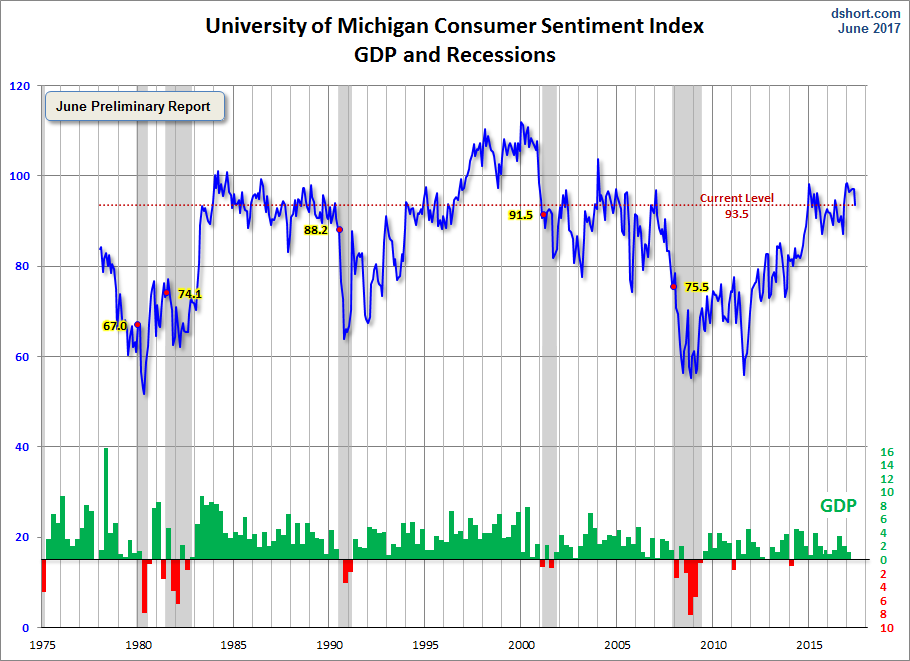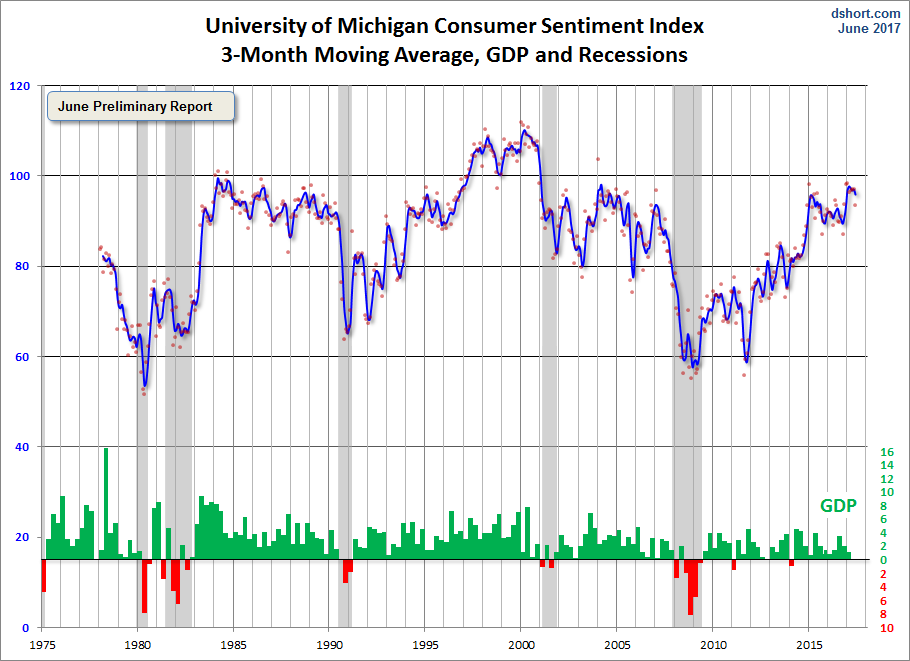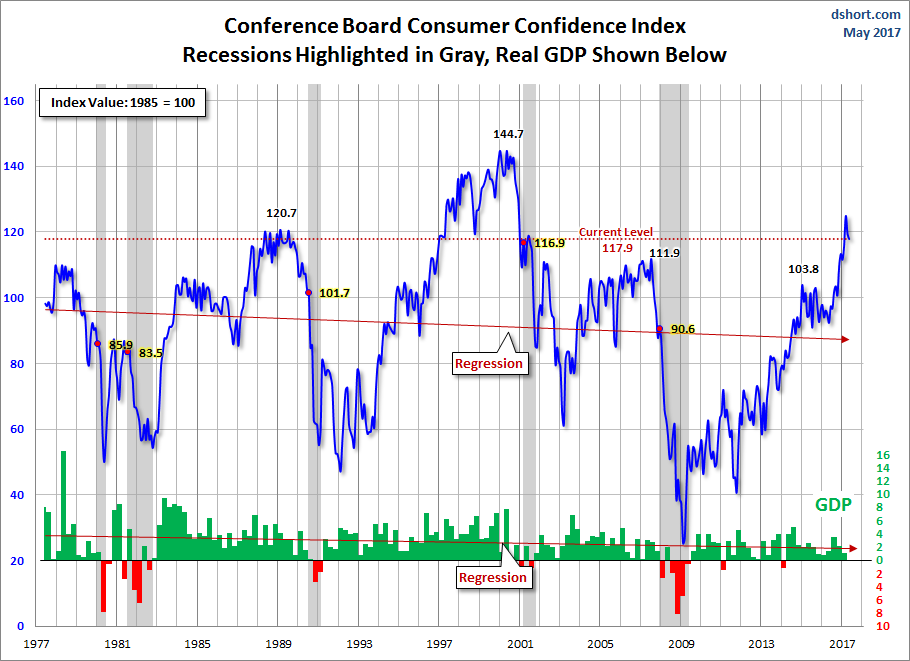The University of Michigan Preliminary Consumer Sentiment for June came in at 93.5, down from the May final reading of 97.1. Investing.com had forecast 97.1.
Surveys of Consumers chief economist, Richard Curtin, makes the following comments:
The modest early June drop of 2.6 points in the Sentiment Index masks a much larger decline since June 8th. Prior to that date the Sentiment Index had averaged 97.7, but since June 8th, the Index fell to 86.7, a decline of 11.0 points. While this break corresponds with James Comey's testimony, only a few consumers spontaneously referred to him or his testimony when asked to explain their views.
Importantly, the decline was observed across all political parties, but the loss in confidence among self-identified Republicans since June 8th was larger than among Democrats (9.2 vs. 6.8 Index-points), with Independents showing the greatest falloff (11.5 Index-points). The size of the partisan difference between Democrats and Republicans in the Expectations Index, however, was largely unchanged (55.6 Index-points prior to June 8th, and 51.2 after).
The recent erosion of confidence was due to more negative perceptions of the proposed economic policies among Democrats and the reduced likelihood of passage of these policies among Republicans. Fortunately, a strong job market, improved household income and wealth have provided a financial buffer against rising uncertainties. Nonetheless, consumers have become less optimistic about the future course of the domestic economy. Even with the expected bounce back in spending in the current quarter, personal consumption is expected to advance by 2.3% for all of 2017. [More...]
See the chart below for a long-term perspective on this widely watched indicator. Recessions and real GDP are included to help us evaluate the correlation between the Michigan Consumer Sentiment Index (CSI) and the broader economy.

To put today's report into the larger historical context since its beginning in 1978, consumer sentiment is 9.2 percent above the average reading (arithmetic mean) and 10.5 percent above the geometric mean. The current index level is at the 71st percentile of the 474 monthly data points in this series.
The Michigan average since its inception is 85.6. During non-recessionary years the average is 87.8. The average during the five recessions is 69.3. So the latest sentiment number puts us 24.2 points above the average recession mindset and 5.7 points below the non-recession average.
Note that this indicator is somewhat volatile, with a 3.0 point absolute average monthly change. The latest data point saw a 3.7 percent change from the previous month. For a visual sense of the volatility, here is a chart with the monthly data and a three-month moving average.

For the sake of comparison, here is a chart of the Conference Board's Consumer Confidence Index (monthly update here). The Conference Board Index is the more volatile of the two, but the broad pattern and general trends have been remarkably similar to the Michigan Index.

And finally, the prevailing mood of the Michigan survey is also similar to the mood of small business owners, as captured by the NFIB Business Optimism Index.
The general trend in the Michigan Sentiment Index since the Financial Crisis lows has been one of slow improvement.The survey findings since December 2015 saw gradual decline followed by a bounceback later in the year with its interim peak in January of 2017.

